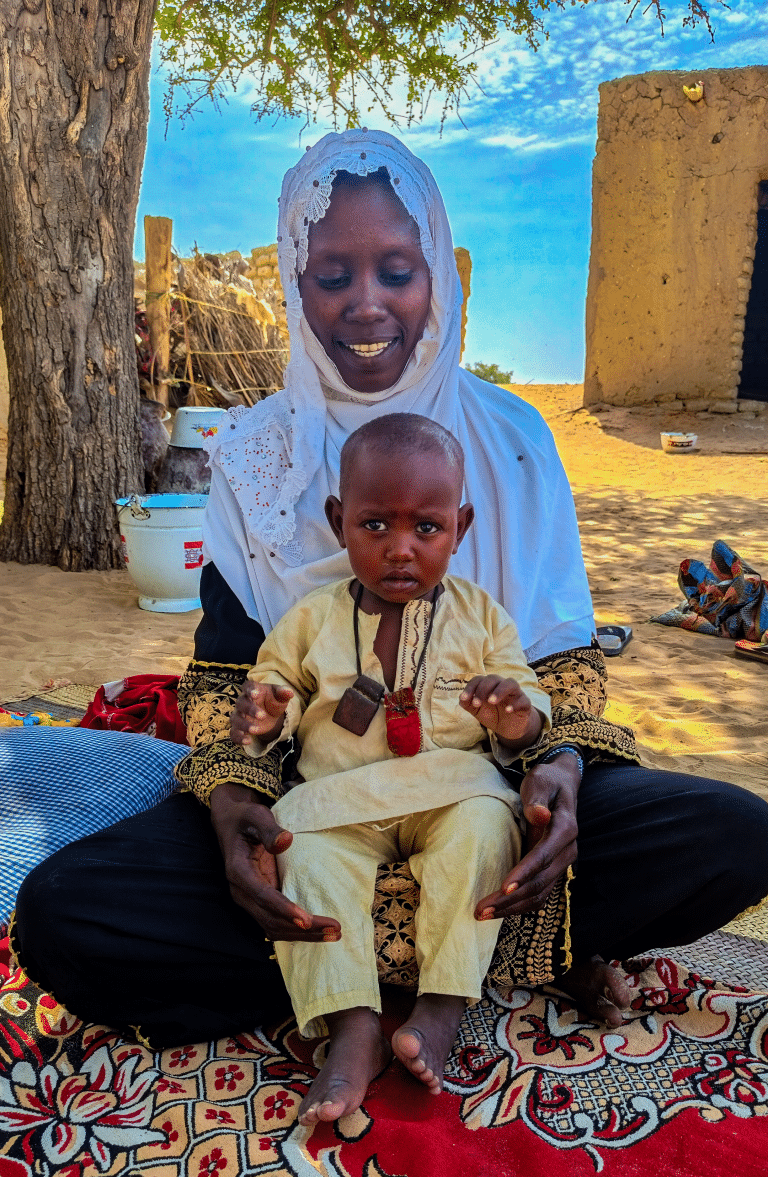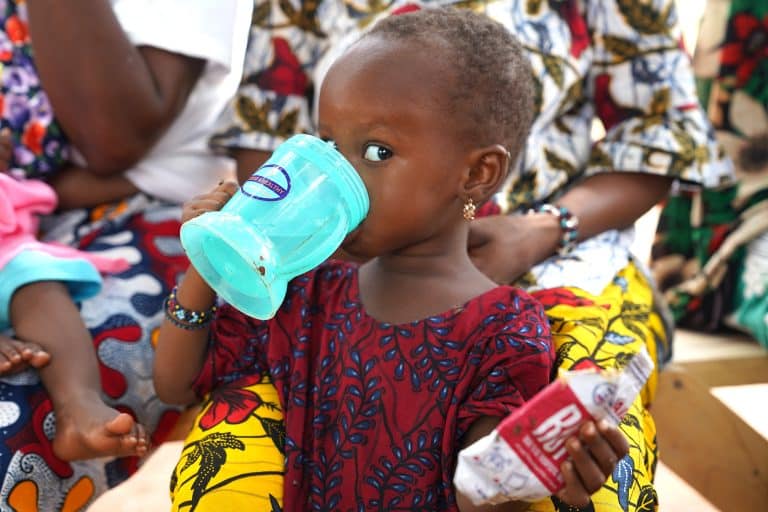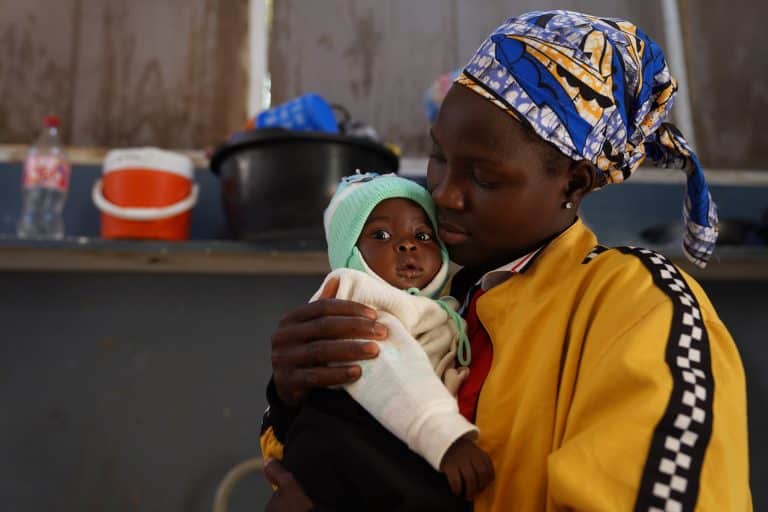Located in the far northwest of Niger, the Tillabéri region shares borders with Mali and Burkina Faso. This Sahelian area, also known as the tri-border area, has been experiencing a prolonged security crisis due to frequent incursions by non-state armed groups, leading to intense military operations. This triangle of insecurity has been causing continuous population displacement. According to UNHCR, on January 31, 2024, the Tillabéri region had over 262,000 displaced people, including around 189,000 internally displaced people (the highest number in Niger), 42,718 refugees, mainly from Mali, and 31,059 asylum seekers, mostly from Burkina Faso. This influx has created significant humanitarian needs in areas such as shelter, water, hygiene and sanitation (WASH), food, health, and protection. The region is also facing outbreaks of diseases with epidemic potential, such as measles, meningitis, and diphtheria, in a context where access to healthcare remains challenging.
In this situation with numerous and intertwined challenges, ALIMA aims to address the healthcare needs of Indigenous and displaced communities. Since 2021, ALIMA teams in the region have provided care to around 168,000 patients, conducting 120,000 consultations, 17,000 hospitalizations, 8,200 deliveries, treating 12,300 cases of severe acute malnutrition, 22,000 prenatal consultations, etc.
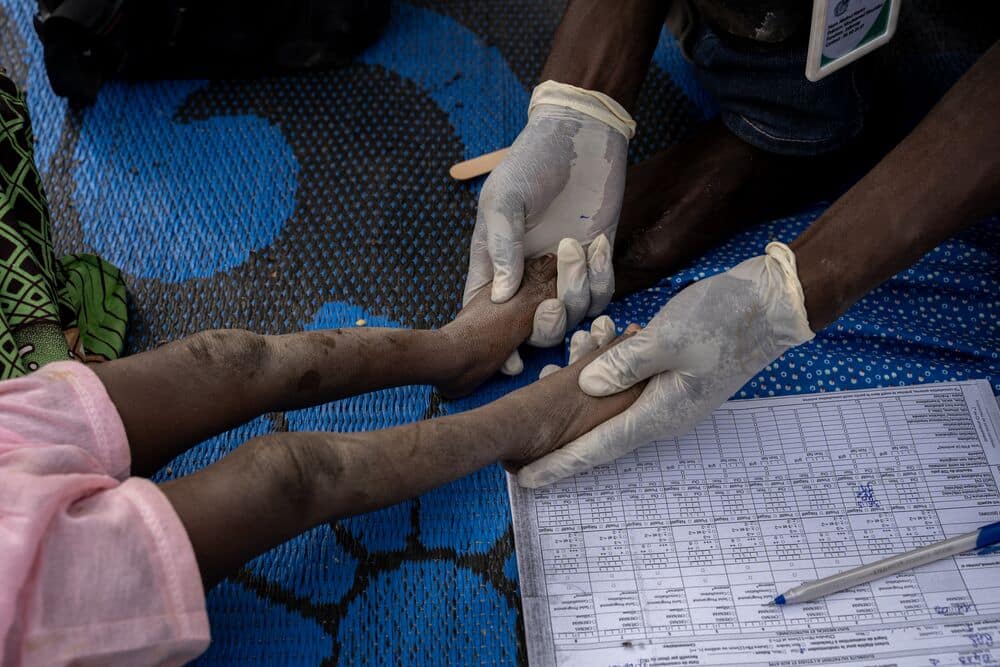
History of the Presence of Alima in Tillabéri
Since 2014, Tillabéri has been a major focus of ALIMA’s activities in Niger, with two projects currently underway. The region is crossed by the Niger River, which separates it into two parts. Our NGO first established operations on the left bank before expanding to the right bank in 2023.
ALIMA’s presence on the left bank was driven by increased insecurity linked to armed opposition groups, crime, and community conflicts. This area is particularly vulnerable and requires a sustained humanitarian response to address the health and nutrition needs of the affected populations.
On the left bank, ALIMA covers the health districts of Banibangou, Ayorou, and Abala. The main office for this area is located in Abala, with additional bases and teams in Banibangou and Ayorou.
What Are Alima’s Main Areas of Intervention?
In Tillabéri, ALIMA’s main focus areas are health and nutrition. Our community-based approach to the health pyramid enables us to operate at various levels of the health sector, integrating communities, primary healthcare (chronic disease management, palliative care, etc.), and secondary healthcare that requires more intensive treatments.
We collaborate closely with local communities and the Ministry of Health. Community activities play a crucial role, as they allow us to reach the most remote areas and provide care to the most vulnerable. Our community-based programs include the IMCI (Integrated Management of Childhood Illness) approach to address common diseases (malaria, respiratory infections, diarrhea, etc.), as well as the MUAC-Mother approach, which provides mothers with tools to monitor their children’s nutritional status and engages them in an active role in the community.
At the Integrated Health Centres, we treat children suffering from severe acute malnutrition (SAM) and strengthen local capacities to ensure the long-term sustainability of activities. We also use mobile clinics to reach remote populations and provide essential care.
Our projects also integrate the concepts of WASH in Nut and Health in Nut, which involve providing drinking water, soap, handwashing stations, sanitary facility cleaning, waste collection and management equipment, and designated waste disposal areas, allowing us to ensure holistic patient care. We also manage cases of gender-based violence (GBV) and mental health issues, offering comprehensive support to those affected.
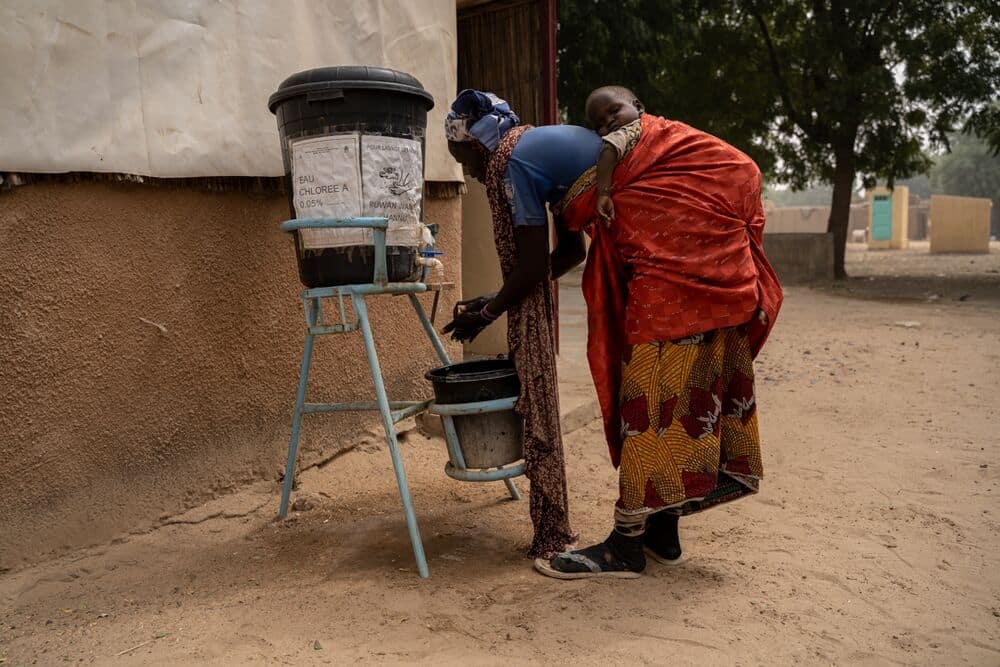
What Needs Does Alima’s Action Meet?
ALIMA’s efforts address several critical needs in the region, which are exacerbated by high levels of insecurity and access issues. Through our interventions, people can access first aid, malnutrition screening, and continuous healthcare that would otherwise be unavailable.
For instance, in Banibangou, where travel is limited to a 5 km radius of the city due to insecurity, ALIMA’s community-based initiatives help manage common illnesses through community relays. Additionally, ALIMA uses mobile clinics to provide psychological support and medical care for cases of gender-based violence. These clinics also serve the Rapid Response Mechanism (RRM) in the event of new humanitarian emergencies.
At the Abala Hospital, ALIMA supports the emergency room, allowing patients to be stabilized and referred if necessary. In the Ayorou health district, ALIMA operates within the district hospital, in the Intensive Nutritional Recovery Center (CRENI), pediatrics, maternity, and laboratory departments. ALIMA also covers the Integrated Health Centers (IHCs) of Inatès and other localities, providing essential services.
The Final Word?
Given the security situation, particularly the frequent incidents of armed violence in the region, we will continue addressing the forced displacement of populations, whose humanitarian needs are growing. The support of the authorities remains essential to facilitate humanitarian access to vulnerable communities and ensure respect for humanitarian principles.
Cover Picture © Alexandre BONNEAU – Afroto / ALIMA


